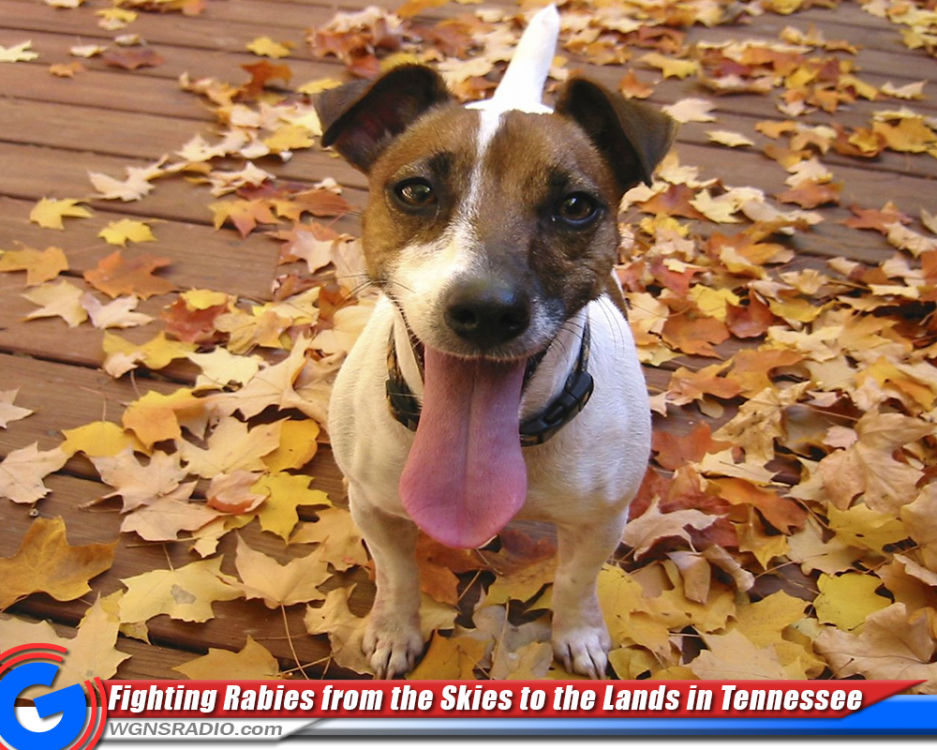TENNESSEE – The Tennessee Department of Health is partnering with the United States Department of Agriculture (USDA) to prevent rabies by distributing oral rabies vaccine for wild raccoons along Tennessee’s borders with Alabama, Georgia, North Carolina, and Virginia. The annual baiting program, administered by the USDA’s Animal and Plant Health Inspection Service (APHIS), Wildlife Services, will begin in Tennessee on October 5, 2024.
Beginning on or around October 5, coated sachet baits containing the RABORAL V-RG® or ONRAB oral rabies vaccine (ORV) will be distributed across portions of the state bordering neighboring states. The baits, targeting raccoons and other wildlife, will be distributed via low-flying airplanes and helicopters.
The aerial bait drop is expected to last for approximately three weeks. When ORV baits are distributed by aircraft, a navigator controls the bait machine and turns it off as necessary to avoid dropping baits on roadways, structures, and large bodies of water. The ORV baits are plastic packets of vaccine coated with an oily, fish-scented substance to attract raccoons.
The oral rabies vaccine will be distributed by helicopter in urban areas and by airplane in rural areas of the state, specifically in locations near the state borders.
For humans, rabies is a serious health concern, making it crucial to control the spread through vaccination efforts. Once the rabies virus infects the central nervous system and clinical symptoms appear, it is almost always fatal. However, rabies deaths are preventable with prompt post-exposure prophylaxis (PEP), which stops the virus before it reaches the central nervous system. The key to survival lies in timely vaccination, which should be administered prior to or soon after exposure (From the World Health Organization, W.H.O.).
This is the 24th year Tennessee has participated in baiting with rabies vaccines to slow and potentially halt the spread of raccoon rabies. There have been zero documented cases of raccoon variant rabies in Tennessee this year. Since raccoon rabies was first detected in Tennessee in 2003, the disease has spread less rapidly here than in other parts of the U.S.
Locally, it’s important to remember that household pets can also contract rabies if bitten by infected wildlife. In up to 99% of human rabies cases, dogs are responsible for virus transmission, with children aged 5 to 14 being the most frequent victims.
Rabies infects mammals, including dogs, cats, livestock, and wildlife, spreading to humans and animals through saliva, usually via bites, scratches, or contact with mucous membranes (e.g., eyes, mouth, or open wounds). Once symptoms appear, rabies is almost always fatal.
In Rutherford County, Beesley Animal Clinic offers drive-up curbside rabies vaccinations Monday through Thursday from 10 a.m. to 12:30 p.m. and 1:30 p.m. to 3:00 p.m. Dogs and cats are welcome, but cats must be in a secure carrier, with only one cat per carrier. Rabies vaccines start at $15 for the 1-year dose and $30 for the 3-year dose (Click Here for Details).
More on the Vaccination Drop – The aerial drop program in Tennessee will focus on distributing vaccine baits across portions of Bledsoe, Bradley, Carter, Cocke, Greene, Hamilton, Johnson, Marion, McMinn, Monroe, Polk, Sullivan, Unicoi, and Washington counties. Each bait is marked with a toll-free number (1-877-722-6725) for assistance or information if anyone finds or comes into contact with a bait.
For more information on rabies prevention or the oral rabies vaccine program, call the USDA Wildlife Services toll-free rabies line at 866-487-3297 or the Tennessee Department of Health at 615-741-7247. You can also visit the USDA website at USDA Rabies Information and the Tennessee Department of Health website at TDH Rabies Fact Sheet.





